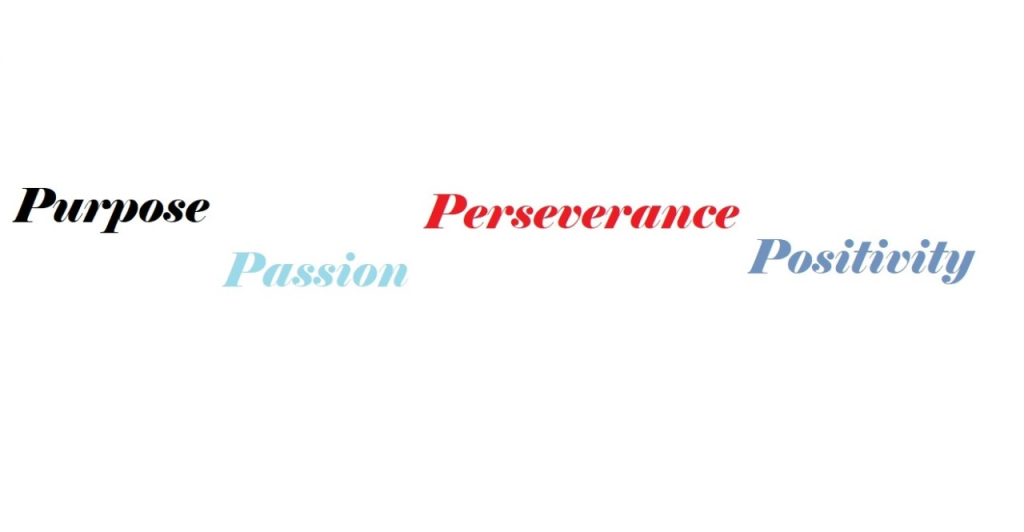In today’s competitive work market, finding a new chance that furthers your career path is not merely a professional goal; rather, it is a strategic need that should be prioritized above all other professional pursuits. Finding the appropriate job may be a game-changer for your professional life, whether your goals are to broaden your skill set, assume greater levels of responsibility, or go in a totally new direction. Beginning this journey demands a methodical approach, beginning with the definition of your professional objectives and skill set and continuing with the identification of the fields and businesses that are aligned with your desires. The three most important factors are networking, developing an impressive résumé, and doing well in interviews.
| Table Of Contents |
| How do I stop overthinking my new job? |
| What is a strong work ethic? |
| What are the 4 P’s of choosing a career? |
| How do I find a job I love with no experience? |
| How can I be proactive in a new job? |
| How to identify your interests and passions? |
| In Conclusion! |
How do I stop overthinking my new job?
Stop overthinking your new work, set objectives, develop a routine, seek help from colleagues, and remember that errors are part of learning.

Stop Overthinking
Putting an end to rehashing, second-guessing, and catastrophic predictions is easier said than done. But with consistent practice, you can limit your negative thinking patterns. Here are six ways to stop overthinking everything:
1. Notice When You’re Thinking Too Much
Awareness is the first step in putting an end to overthinking. Start paying attention to the way you think. When you notice you’re re-playing events in your mind over and over or worrying about things you can’t control, acknowledge that your thoughts aren’t productive.
2. Challenge Your Thoughts
It’s easy to get carried away with negative thoughts. So before you conclude that calling in sick is going to get you fired or that forgetting one deadline is going to cause you to become homeless, acknowledge that your thoughts may be exaggeratedly negative. Learn to recognize and replace thinking errors, before they work you up into a complete frenzy.
3. Keep The Focus On Active Problem-Solving
Dwelling on your problems isn’t helpful, but looking for solutions is. Ask yourself what steps you can take to learn from a mistake or to avoid a future problem. Instead of asking, why did this happen? Ask yourself: What can I do about it?
4. Schedule Time For Reflection
Stewing on your problems for long periods of time isn’t productive, but brief reflection can be helpful. Thinking about how you could do things differently or recognizing potential pitfalls to your plan, for example, can help you do better in the future.
Incorporate 20 minutes of “thinking time” into your daily schedule. During that time, let yourself worry, ruminate, or mull over whatever you want. Then, when your time is up, move onto something more productive. When you notice yourself overthinking things outside of your scheduled time, remind yourself that you’ll think about that later.
5. Practice Mindfulness
It’s impossible to rehash yesterday or worry about tomorrow when you’re living in the present. Commit to becoming more aware of the here and now. Just like any other skill, mindfulness takes practice, but over time, it can decrease overthinking.
6. Change The Channel
Telling yourself to stop thinking about something can backfire. The more you try to avoid the thought from entering your brain, the more likely it is to keep popping up. Busying yourself with an activity is the best way to change the channel. Exercise, engage in conversation on a completely different subject, or get working on a project that will distract your mind from the barrage of negative thoughts.
What is a strong work ethic?
A strong work ethic requires devotion, consistency, reliability, and giving one’s all in every professional activity.

Can we too achieve greatness? And if so, how? There is in fact hope for us, and it comes in the form of two little words: work ethic. My favorite thing about work ethics is that it does not discriminate. It does not matter if you are old or young, smart or dumb, black or white, fat or lite. You cannot be born into it, nor can it be given to you. You have to chase it down, but anyone can! With that said, let’s explore my definition of work ethic. Here is a list of some of my non-negotiable, must-have traits:
1. Show Up
This is the first one on my list because nothing really happens unless you are present. But showing up is easy to do if you are excited about the event or task, if you love the people you are with, if you have great news to deliver, and if you got a solid eight hours of sleep the night before. But what about the other times? When I think of people that fit the definition of work ethic, I can point to times when I knew they were tired, and they showed up! I knew they were busy, and they showed up! I knew that there were a hundred other places they would rather be and a hundred things they would rather be doing, but they showed up! This notion of showing up is a cornerstone component and the easiest way to go about improving your work ethic.
2. Ignore The Clock
Some people become enthralled by how much time they spend doing something. Whether they pulled an all-nighter studying for a final exam, got to the office at 7 a.m., or stayed until 7 p.m. But all that really matters is what you do during that time. Those with the strongest work ethics understand that the time required is whatever time it takes to get the job done properly, nothing more and nothing less. So walk over to the wall, take down the clock, shove it in your desk drawer, and focus on the work!
3. Embrace Your Why
There should always be a WHY associated with an action. It is the fuel that lights the fire. Without a strong reason, it can be really difficult to maintain a strong work ethic. You might be able to fake it for a little while, but that chore will eventually get old. Some push themselves for love and passion. Some push themselves for money. Some push themselves to give their family a better life. Whatever your reasons are, they can be a major motivating factor. Do not be afraid to evaluate, understand, and embrace your WHY. You can drastically improve your work ethic if you have a reason for your efforts. A conscious decision to fight for that cause should be made once you have gained an understanding of what that reason is.
4. Follow Through
This one is pretty self-explanatory. The definition of work ethic must include follow-through. There are a lot of cliché’s that refer to this notion. A couple that I like best are “plan your work and work your plan” and “say what you do and do what you say”. You have to be a person who is reliable. People have to know that when you give your word, that word will be stronger than oak. You will not miss deadlines. You will not show up late. You will not overpromise and underdeliver. And most importantly, you will not rely on a handful of excuses to let yourself off the hook.
5. Be Selfless
If you were the Wizard of Oz, there is a chance that you could be a selfish, hard worker. Think about it: you are up there all alone in your castle, making decisions that affect a bunch of people you’ll never meet, and nobody is around to tell you right from wrong. But that is not reality. The truth is that the vast majority of us have to work with and for people in some way or another. We do not have the luxury (or misfortune, depending on how you view it) of working in complete isolation. So with that said, the people around us will inevitably have demands of us. Client demands, boss demands, and of course colleague requests (“Can you please handle my presentation today? I came down with a terrible headache last night” The people that stand out to me are those willing to think outside of themselves. They will, from time to time, take on extra work in order to help someone else out. You can improve your work ethic by taking on more than just your own business. Sometimes you are called to do more, and the definition of work ethic means answering that call!
6. Be Resilient
Not a whole lot to there is no one here. Things will not always go your way. Deal with it!
7. Respect Your Talent
I am a big sports fan, so for this one, my mind immediately goes to an athlete like Michael Jordan. He was born gifted. He was born with a god-given talent for the game of basketball; there is no doubt about that. But it has been said that he was also one of the most tireless workers that has ever played the game. He spent countless nights in the gym shooting thousands of shots and working on his game. And he did all of that after he was already one of the best players in the NBA. That is the definition of having respect for your talent. He took his talent, and he ran with it. He never rested on his laurels. Had he never practiced at all, he still probably would have succeeded on talent alone, but he never would have reached his full potential (and given us so many jaw-dropping moments on the court!). The point is that we all have talents that we have been born with, which is wonderful. But that is only half of the story. It is what we choose to do with that talent that will separate us from the pack. Those who are always striving to be better are the ones who will leave a lasting legacy. And then, and only then, might they be mentioned in a career blog years later!
What are the 4 P’s of choosing a career?
Passion, purpose, perseverance, and positivity provide a well-informed employment choice by considering your interests, talents, growth potential, and values.

The 4 P’s of success in life or business are:
1. Patience: Often times, it takes years to launch a new idea and still more time to be successful at it. You have real control over the thinking of others. Be it the world, family, friends, or business associates Some will come around to your way of thinking; others will not. You know it’s a great idea, but ‘they’ may not be ready for it. The world is not on your clock.
2. Persistence – If you really believe in what you’re doing you will not give up. Changing your thinking, adjusting the measurements, and revising your plan are all part of the process. Giving up is not.
3. Perspiration: If you don’t do the work, nobody else will. You can try paying someone else or coercing them. Unless they see the passion and real commitment in you, their effort will likely not be enough to help you be successful.
4. Passion: You can’t be taught passion, buy it, or be given it as a gift. It is so strong that others can see it, hear it, almost taste it, and touch it in the way you present yourself and your ideas. It can’t be faked or forged; true passion is very real. Genuine passion bubbles up from within. You can’t contain or control it, and without it, your chances of success are slim. Find something you are passionate about and start pursuing it now! It could take a while to get there. Don’t forget to enjoy the journey.
How do I find a job I love with no experience?
Find a career you love without experience, focus on volunteering, internships, and self-learning, network with specialists in your industry, and write a compelling résumé that shows transferable talents and your passion for the role.

Find a Job as an Intern or Volunteer
A good way to add relevant work experience that you can speak of is through volunteer work or internships. Lots of companies welcome interns, and it’s a great way to learn the workings of a business. You can talk about real teamwork and collaborative experience in future interviews.
When you are interning with a company, show initiative and a doer’s mindset so that not only will you learn more, but you can eventually fall back on them for referrals and references. A lot of companies also make formal job offers to interns who have done good work with them. If employers are feeling the pinch, chances are your idol might be open to an apprentice with a possibility of future employment. Ask. At best, you will get a job in the future. At worst, you will learn.
Similarly, volunteering is another great way to learn skills and garner professional contacts.
If nothing else, you can stay connected with the people you worked with—a great way to build your network!
How can I be proactive in a new job?
In a new position, aggressively explore opportunities to contribute, take initiative, ask questions, and search for ways to enhance procedures and offer value.

Take stock of your current responsibilities.
- What are your tasks?
- What are the priorities?
- What can be consolidated, eliminated, or shortened?
- What can you do to stay ahead of less urgent tasks?
- How do you solve problems?
- Can you prevent problems by planning ahead and developing alternative processes in anticipation?
- What are the things you still need to know?
- Can you automate any of your tasks to make them more effective and less time-consuming?
How do you identify your interests and passions?
Self-reflection, experiencing different hobbies, noticing what fascinates you, and focusing on where you find fulfillment and joy are ways to identify your passions.

Questions to Ask Yourself
Without putting too much pressure on your answers, think of how you would respond to the following questions:
- What did you spend your free time doing when you were younger?
- What were you good at when you were in school? (Note: This doesn’t have to be academic-related. Think about clubs (think about activities you participated in too)
- What are you curious about? What are you always trying to learn more about?
- What could you talk about for hours on end? What do you already know a lot about without having to do any research?
- What do you do every single day with ease that others might not want to or be able to do? What activities or tasks make you lose track of time when you’re doing them?
Sometimes you have to think outside of the box or simply stop trying to force your passions into work. Life often gives you just what you need in a way you could never have planned for at the exact time that you need it.
What are your passions in life?
In Conclusion!
Remember that your route to success is unique and dynamic, and it’s normal to encounter hurdles and uncertainty. These situations will build your character and resilience, so embrace them as development chances. You have the power to overcome challenges, attain objectives, and realize aspirations. Maintain your enthusiasm, persevere, and never underestimate the potential of constant learning and self-improvement. Build a network of friends and mentors who believe in you. Hard work, persistence, and dedication will lead to success. You’re improving your profession and yourself with each step. Keep going with confidence—your trip shows your unshakeable spirit and the endless possibilities ahead.